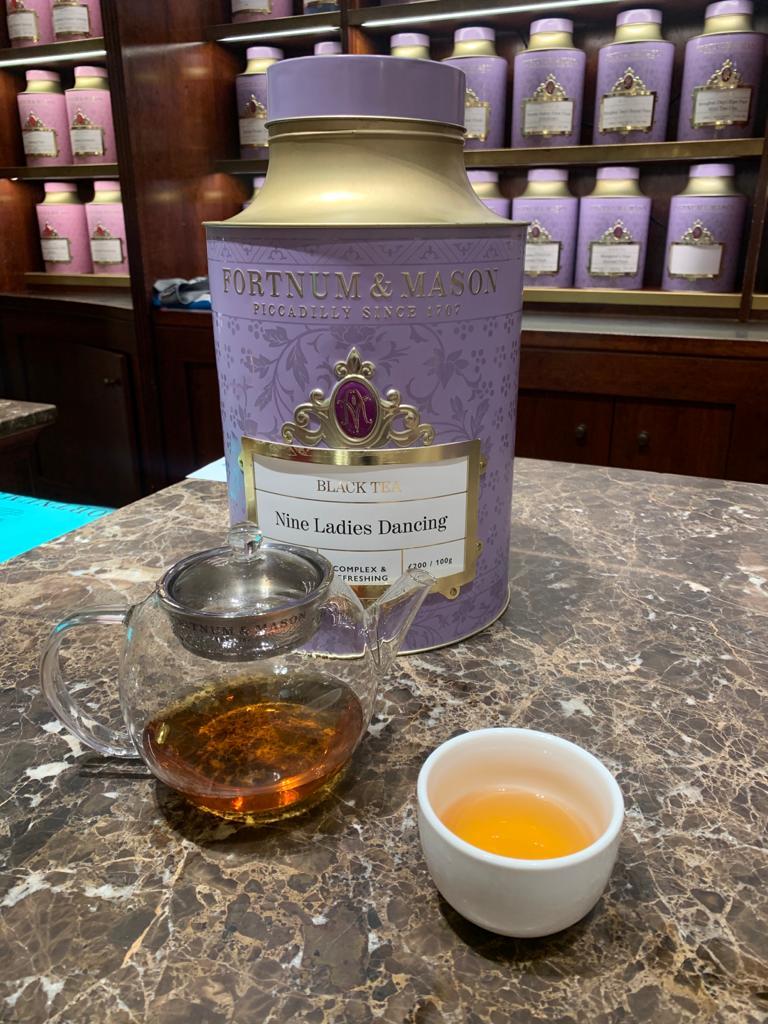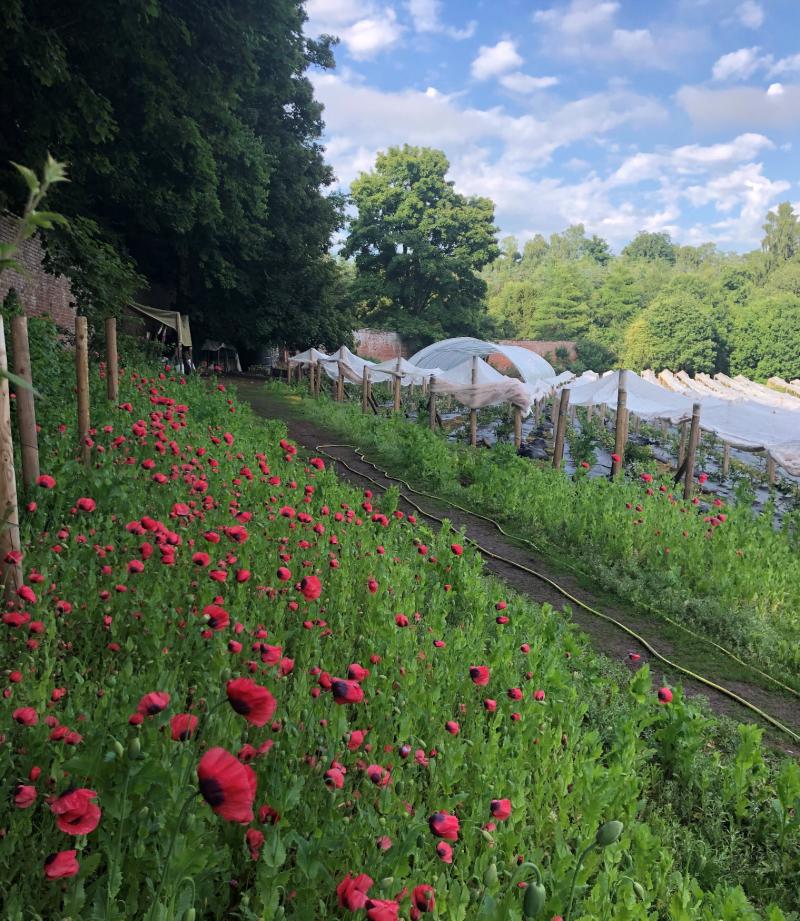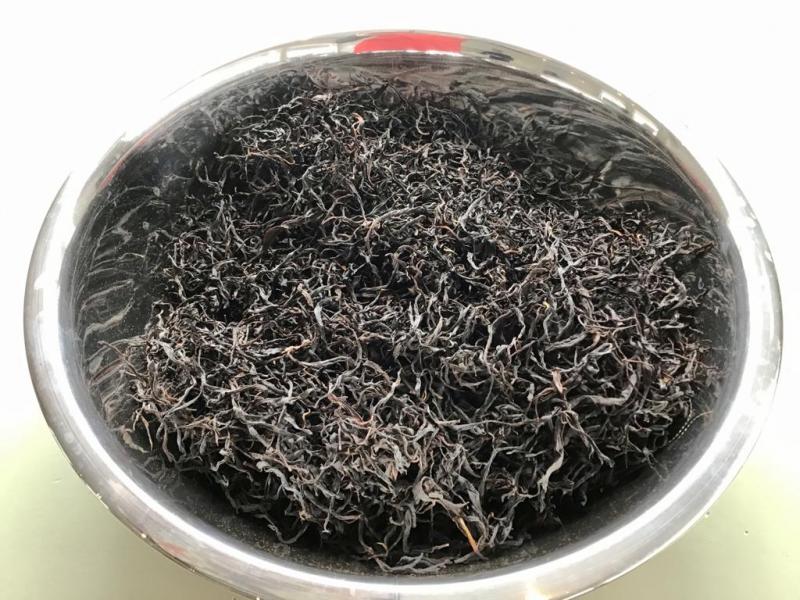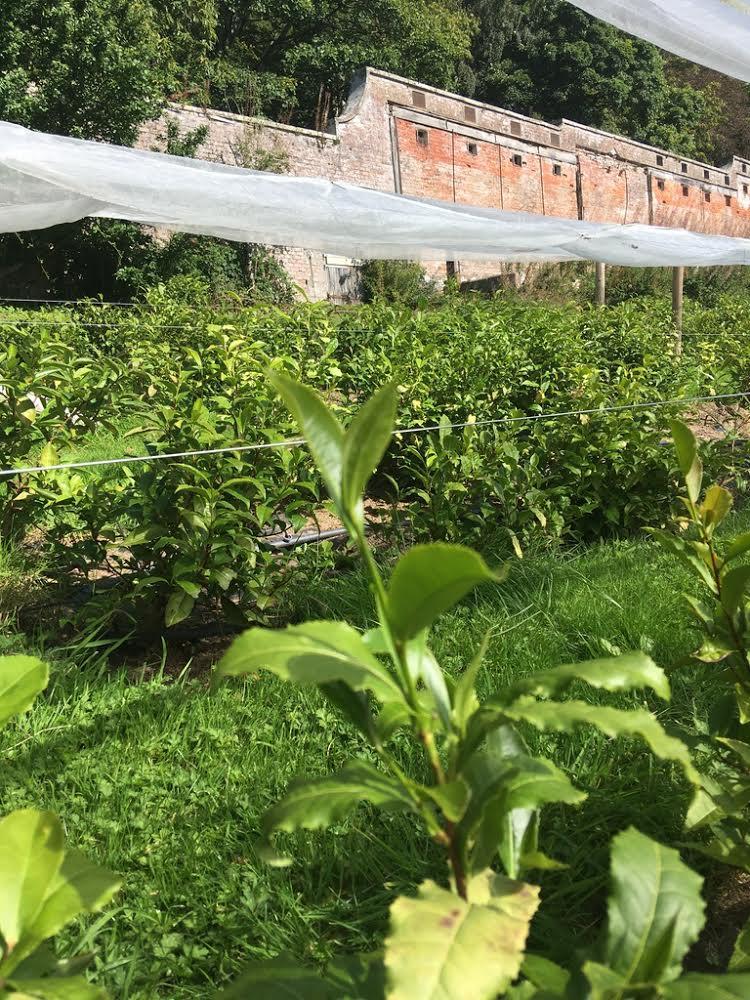Tea Gardens of Scotland – a new artisanal tea brand from nine independent tea gardens from across Scotland – launched Nine Ladies Dancing tea. They've also landed orders with London-based luxury brands Fortnum & Mason for its rare tea counter, as well as the Corinthia Hotel for its royal suite. The Nine Ladies Dancing tea was plucked from all nine tea gardens from the Tea Gardens of Scotland, thus the name.

The Tea Gardens of Scotland is a pioneering collaboration, and the result of four years of planning amongst nine women entrepreneurs – all of whom created the collective in 2016.
The women include:
Kate Elliot – Logie Tea Garden
Catherine Drummond Herdman – Megginch Castle Tea Garden
Jane Spencer Nairn – Rankeilour Tea Garden
Polly Holman Baird – Rickerton Tea Garden
Susie Walker Munro – Kinnettles tea Garden
Veronica Murray Poore – Broich Tea Garden
Pinkie Methven – St Martins Tea Garden
Mary Gifford – Kinnordy Tea Garden
Lisa Dickson – Dollerie Tea Garden
With a mission to produce a revolutionary wave of authentic, hand-crafted Scottish teas, each of these ladies forged new careers as tea planters, transforming abandoned walled gardens, diversifying farms and converting home gardens in Perthshire, Fife, Angus and Kincardineshire, Scotland. They shared glasshouses and machinery and, as a united force, they propagated tea plants from seed in distinctive sheltered micro-climates around the country.
Pure Scottish-Grown Tea
The result of the collaboration is a 100-percent pure Scottish-grown black tea. Golden, smooth and with sweet notes of dried fruits, caramel and chocolate, The Tea Gardens of Scotland says its new tea is slightly woody, layered and complex, and the team of tea entrepreneurs is excited to have attracted attention from the top end of the market with initial orders placed by two giants in the luxury industry – Fortnum & Mason and Corinthia Hotel, which is one of London's most prestigious hotels that takes its tea very seriously.

Tea Consultant Beverly Wainwright, of The Scottish Tea Factory (a small-scale tea factory, where the Tea Gardens of Scotland’s tea was made and processed in small batches), worked with and advised the group of women tea entrepreneurs for several years on everything from growing tea to tea making.
“The conditions for growing tea in Scotland are far from ideal, with a very short growing season, harsh winters and low light levels,” said Wainwright. “Attempting to grow tea is not for the faint hearted and in the early days has been – by necessity – experimental. Trials with different plant material, winter and wind crop protection have all been part of the process. The concept of rehabilitating old abandoned walled gardens to grow tea in a more protected environment has not been without its challenges, but these gardens are now beginning to flourish. The first teas being created are showing great promise with a distinct flavor profile, significantly influenced by the low light levels and long daylight hours of Scottish summer.”

Susie Walker Munro of Kinnettles Tea Garden in Angus, Scotland, spearheaded The Tea Gardens of Scotland collective by bringing the other eight ladies together. As a group, they were awarded LEADER funding (a European funding program that supports rural community and business projects) for a feasibility study to grow tea from seed in Scotland. This then led to the group to instructing authenticity trials with Aberdeen University to successfully prove the provenance of Scottish tea.
‘Watch Out For’ This Tea Business
The Tea Gardens of Scotland noted that all of their efforts – combined with their passion for growing and making tea – makes Nine Ladies Dancing a tea that connoisseurs and the tea industry should “watch out for,” especially as luxury brands are taking notice of the tea.
The ladies’ commitment to growing 100 percent pure Scottish tea meant the collective faced a number of challenges. Being in locations spread out across Scotland, each garden begins its spring and starts its winter at slightly different times, battling unpredictable elements and wildlife. There is a shorter growing season in Scotland, with many varietals within the seeds not suited to cold winters. This called for innovative techniques, such as using sheep wool for mulch, steeping organic fertilizers, and trialing seeds grown both in seed beds and straight into the ground. As a result, the collective says it’s a slow process to establish a mature bush that can withstand the rigors of regular plucking. The current four-year-old plants are still undergoing formative pruning and won’t reach maturity for a further two to three years, which is why there are currently such small quantities of tea being produced.

“Moving from Sri Lanka, where I managed a tea estate, back to Scotland – and having grown tea in ideal conditions – it required quite a shift in thinking,” shared Wainwright. “Clearly, establishing tea plants in Scotland was going to require new ideas. The need to experiment with growing techniques, crop protection and ultimately tea making, the only way to make progress. The last four years have thrown up many challenges, including major plant losses after a very harsh winter in the early years. All credit to the TGS [The Tea Gardens of Scotland] team for their tenacity, willingness to learn and change track when needed.”
An Exciting Journey
Wainwright added that the fact that the plants are now beginning to flourish is to their credit. “Short growing seasons, infilling where plant losses occurred, and the process of formative pruning has meant that the path to establishing the plants is extremely slow,” she said. “Currently, the oldest outdoor plants have been in the ground for four years and we estimate seven years from planting to full maturity. Despite the challenges, this has been an exciting journey and at last work has started to create finished teas in the Scottish Tea Factory for the group. The quantities of tea being currently made are tiny – just a few kilos a year – making Scottish tea one of the rarest in the world.”
As the tea plants begin to mature in year five, the ambition for the Tea Gardens of Scotland collective is to secure a reputation as world class tea producers, promoting tea tourism and riding the revolutionary wave of authentic, hand-crafted Scottish tea.
To learn more, visit TeaGardensOfScotland.co.uk and ScottishTeaFactory.co.uk.
